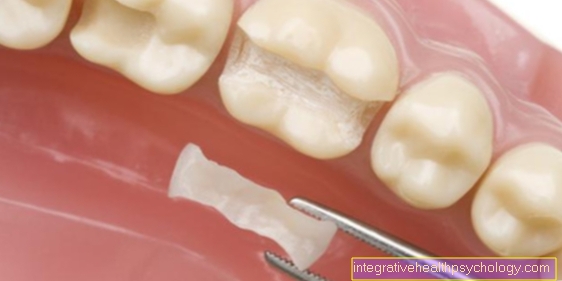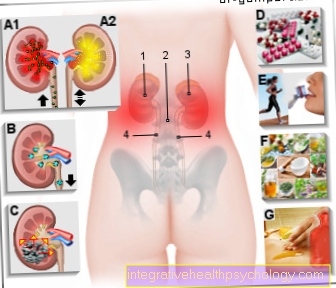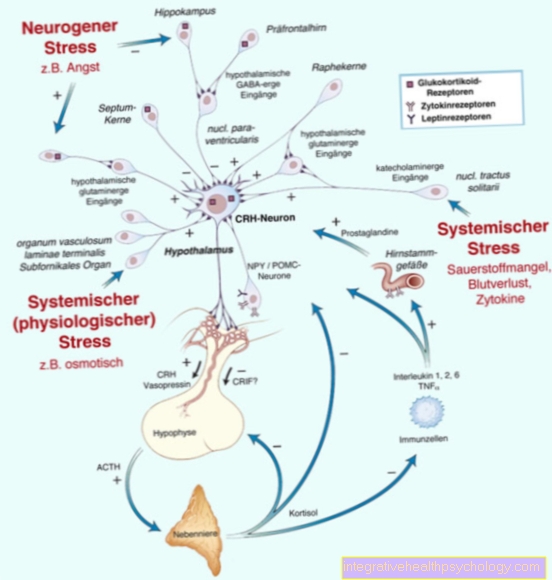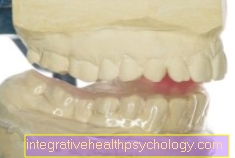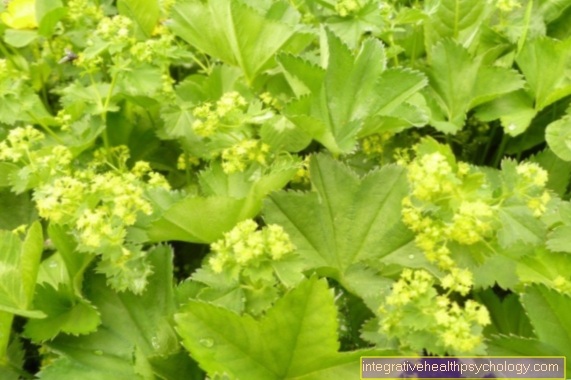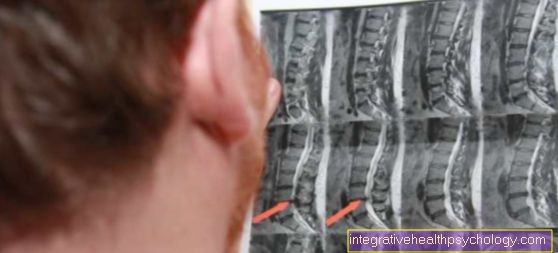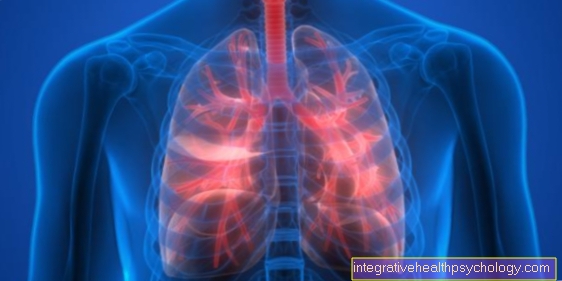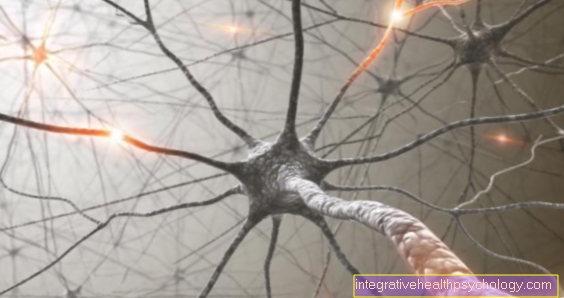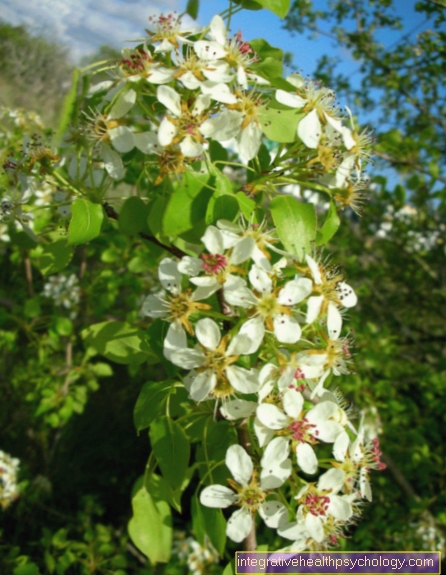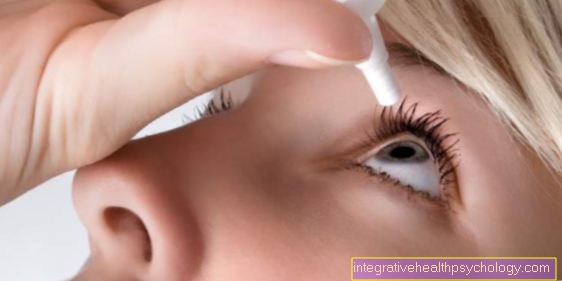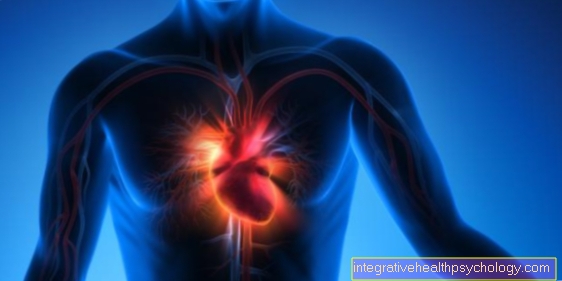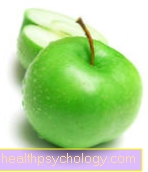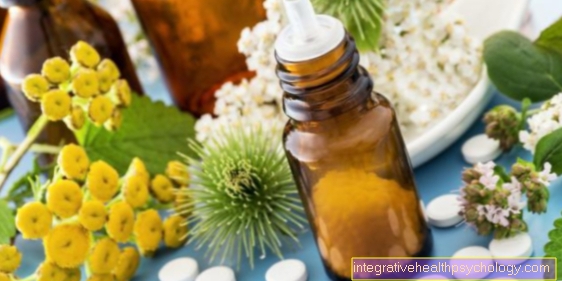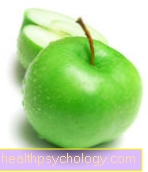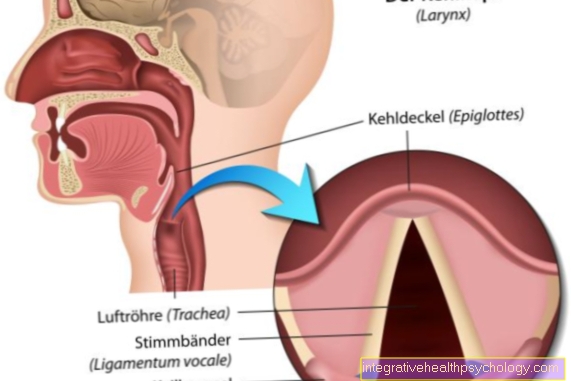Vitamin K - phylloquinone
to overview Vitamins
Occurrence and structure
Vitamin K is made by plants and our intestinal bacteria. This is an important structural feature Naphthoquinone (consisting of 2 rings) to which a side chain is attached.
function
Vitamin K plays an important role in Blood clotting. It modifies the coagulation factors II, VII, IX and X, as well as the coagulation inhibitors Protein C and Protein S. Vitamin K carboxylated (attaches a COOH group) these factors, which thereby acquire a negative charge. With the help of this negative charge, the coagulation factors and inhibitors are now able to generate a positively charged one Calcium ion to tie. This "complex" from Clotting factor and Calcium in turn, it can now dock onto the negatively charged outer surface of cell membranes - only in the case of tissue damage. This allows the coagulation factors to stay in one place and are not washed away with the blood flow from the place where they are needed.
In everyday clinical practice, so-called Vitamin K antagonists (i.e. opponents of the Vitamin Ks) used for anticoagulation. For example, in patients after a Heart attackto prevent a new dangerous blood clot from forming. These inhibitors prevent the vitamin K from being mentioned above Carboxylate substrates can. They lose their function and coagulation is inhibited. However, 2-3 days pass before the effect begins, as there is still a "pool" of coagulation factors that have already been carboxylated by vitamin K. An example of a vitamin K antagonist is the drug Marcumar.
For those interested: Under treatment with Vitamin K -Antagonist, the Quick value is increased, which means that the bleeding time of the extrinsic coagulation system is extended.
Deficiency symptoms
A lack of Vitamin K is extremely rare as it is also produced by intestinal bacteria. However, such a deficiency can have dangerous effects in newborns whose intestinal flora, including bacteria, are not yet sufficiently developed to produce enough vitamin K.
A deficiency leads to a strong tendency to bleed. Understandable, since the factors that use the modification of vitamin K to stop any bleeding quickly are no longer functional if the body lacks vitamin K. So even small injuries (Microtraumas) to prolonged bleeding (constant Epistaxis, lots of bruises ..).
Read more about this topic under Vitamin K2.
Vitamin K occurs in 2 natural forms: vitamin K1 and vitamin K2. Vitamin K2 helps give the bones greater stability and reduces the number of fractures.
You can read more about this topic at: Vitamin K - a useful dietary supplement?
Overview of vitamins

Water-soluble (hydrophilic) vitamins:
- Vitamin B1 - thiamine
- Vitamin B2 - riboflavin
- Vitamin B3 - niacin
- Vitamin B5 - pantothenic acid
- Vitamin B6 - pyridoxal / pyridoxine / pyridoxamine
- Vitamin B7 - biotin
- Vitamin B9 - folic acid
- Vitamin B12 - Cobalamin
Fat-soluble (hydrophobic) vitamins:
- Vitamin A - retinol
- Vitamin C - ascorbic acid
- Vitamin D - calcitriol
- Vitamin E - tocopherol
- Vitamin K - phylloquinone / menaquinone

